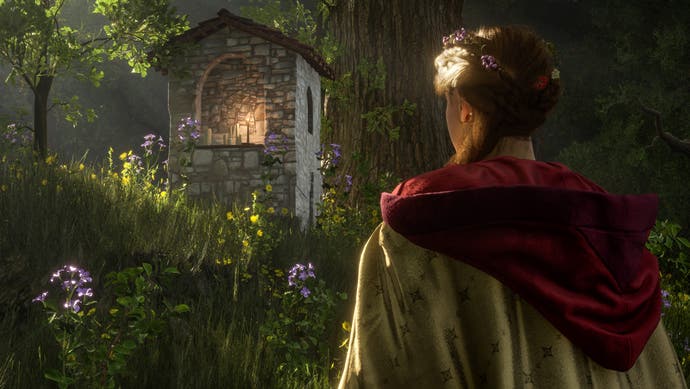Pax Dei is an MMO that looks like an Arthurian dream and has no NPCs
From one of the original creators of Eve Online.
I've had a presentation for a promising new sandbox MMO called Pax Dei.
It looks like an Arthurian fairytale. I saw characters in flowing dresses in a sun-dappled wood working together to build picturesque hamlets or settlements. They placed down floors and walls in a blueprint-style way, as in other building games, before equipping plate armour and weaponry and venturing to darker, more barren and dangerous areas of the world. The smoky spirit-like enemies they encountered there were genuinely scary.
One of the most eye-catching things about Pax Dei is its looks. This is Unreal Engine 5 and Pax Dei is a handsome beast, and you can see some of that in the screenshots here, although I think they're pulled from the announcement trailer. But in play, it looks similar, and the settlements you create are gorgeous.
The second notable thing about the pitch is sandbox player freedom. In Pax Dei, there are no NPCs, besides monsters, which means you can forget about the usual towns you find in other MMOs. There are none. Every settlement is made by players, which also means that all the vendors or quest-givers you find in other MMOs are not here either. Again, that all comes from you.
The driving force of it all, then, will be a player-led economy and adjoining crafting system. The idea is that, over time, players will specialise in areas and work together to create things. If you need specific materials, you'll go to someone who specialises in getting them and ask them to help. In other words, you'll give them a quest.
Fighting monsters is a big part of the game too, and there will be raiding and dungeons and the kinds of things you expect. I didn't see much of this beyond a battle with some ethereal, smoky creatures, and then a glimpse of a huge enemy which frightened me - it reminded me of something out of Stranger Things - but it was enough to get the gist.
It sounds like you'll learn weapon abilities based on how much you use the item, a bit like Guild Wars 2, and I'm told there's a magic system but didn't see much of it besides a kind of prayer. There are no character classes, though. It's a freeform approach where your speciality comes through use.
There will be PvP, although not in the Heartland areas where players will initially and typically build - these will always be safe. But there will be other areas where laws are lifted and PvP can happen, and I think you'll be able to build there too.
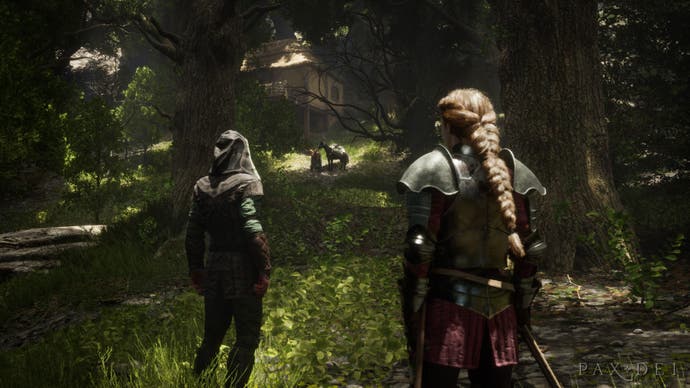
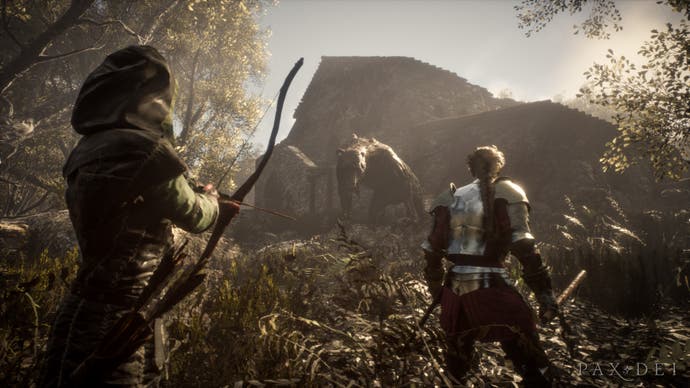
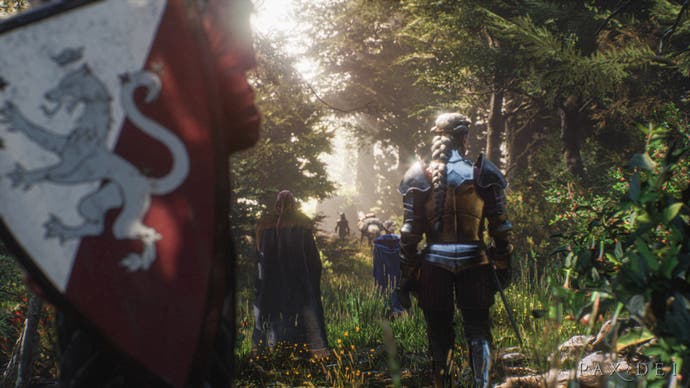
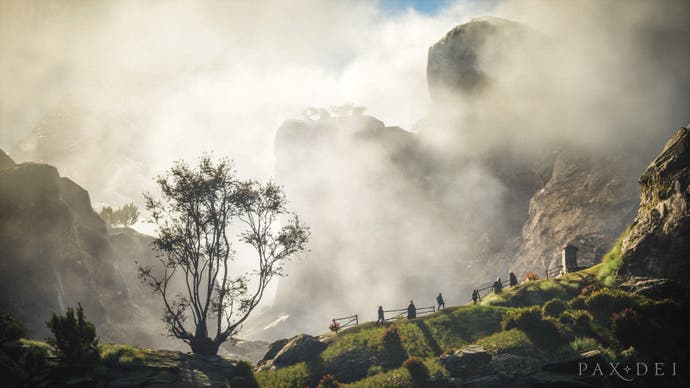
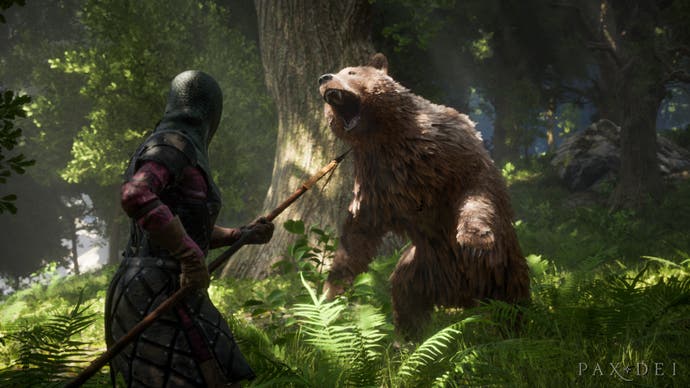
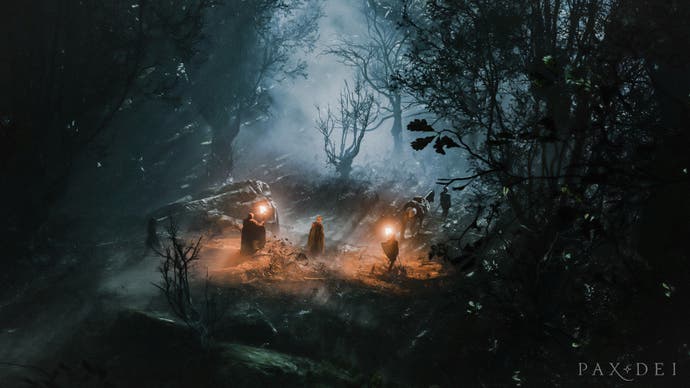
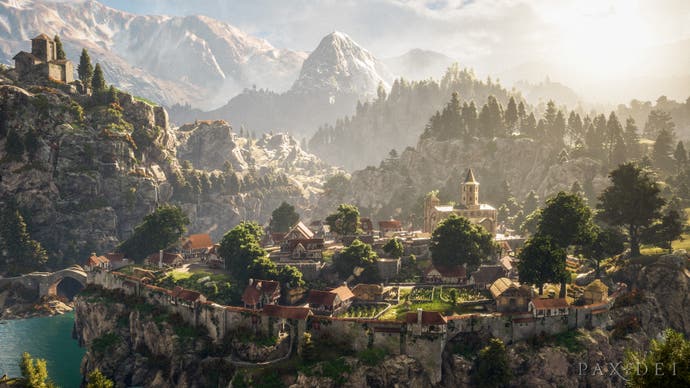
Altogether, it's a bold and attractive pitch - and one that harkens back to the old ideas of persistent worlds, albeit with the new kinds of building systems added on. The big hope is for Pax Dei to encourage the kind of emergent, community gameplay that's made games like Eve Online so successful in the past. There's another reason for that comparison too: this game's creative director, Reynir Hardarson, was one of the original minds behind Eve Online.
He's joined at developer Mainframe Industries by a squad of experienced developers from around the world. There are studios in Helsinki, Reykjavík and Paris, and staff from companies like CCP, Remedy, Blizzard and many more. There are around 70 people working there now, and Pax Dei has been in development for three years.
There's no word on a release date or final platforms, although PC will certainly be one of them. A big focus of the studio is on making a "cloud-native" game, as in, one that can be stream-played on various platforms, particularly mobile. I'm told Genshin Impact has been a big inspiration here.
Exactly what that materialises as, and when, though, we'll have to see. But there's already been some alpha testing so something is definitely built and playable, and you can sign up to test Pax Dei if you're interested. One to watch.
